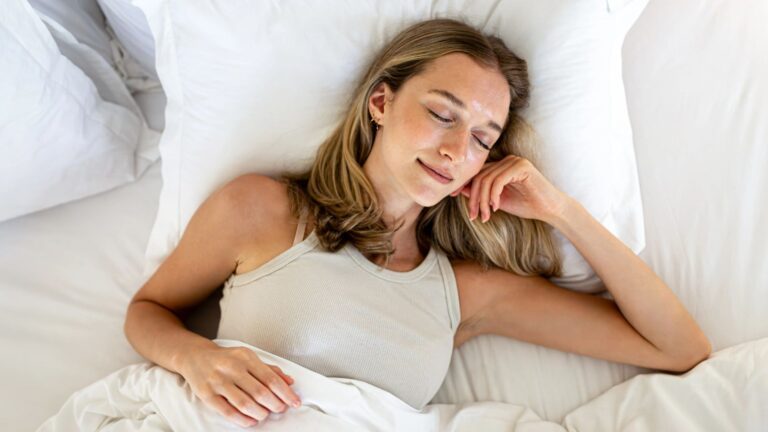A POPULAR sleep trend that’s taken social media by storm and loved by celebs “could suffocate and kill you”, scientists warn.
Mouth taping is an increasingly popular home treatment used to encourage nose breathing during sleep.

3

3
It’s claimed the practice can help a number of issues from snoring to bad breath.
And a whole bunch of celebs can’t get enough of it.
Manchester City striker Erling Haaland includes mouth taping as part of his sleep and training routine.
In a chat with Logan Paul on the ‘Impaulsive’ podcast, he explained: “I think sleep is the most important thing in the world. You should try and tape your mouth shut close at night.”
Actress Gwyneth Paltrow, known for her unique approach to health and wellness, has also jumped on the mouth taping band wagon.
In November 2022, she took to her Instagram to recommend the mouth taping brand she uses, saying: “This is probably the single best wellness tool I have found recently. Breathing through your nose at night apparently creates alkalinity in the body and promotes best quality sleep.”
Model Ashley Graham, US talk show host Jimmy Fallon, and Virgin Radio host Chris Evans are also fans of the sleep hack.
But an evaluation of 10 previously published studies suggests the recent fad may have little benefit and could pose serious asphyxiation risks.
As the safety and effectiveness of nighttime mouth taping has actually been unclear up until this point, Dr Brian Rotenberg of Western University in London, Ontario, Canada and colleagues at St Joseph’s Health Care London and London Health Sciences Centre Research Institute reviewed studies that have explored the practice.
Their analysis included 10 studies that employed different research methods to evaluate the potential benefits of sealing the mouth shut – using tape or other devices, such as chin straps – for a total of 213 patients.
Out of the 10 studies, two suggested mouth taping may be associated with a slight improvement in apnea-hyopopnea index – a measure of sleep apnoea severity.
But other studies found no evidence mouth taping might help treat mouth breathing, sleep-disordered breathing, or sleep apnoea.
Four of the 10 studies discussed the potential serious risk of asphyxiation posed by sealing the mouth shut during sleep, particularly for those with serious restriction or blockage of nasal airways.
Serious nasal obstruction could result from conditions such as hay fever, chronic rhinitis, deviated septum, sinonasal disease, or englarged tonsils.
The authors concluded existing evidence doesn’t support nighttime mouth taping as a treatment for sleep-disordered breathing, including obstructive sleep apnoea.
But they did note further research is needed.

3
They wrote: “Mouth taping is a contemporary practice that is often celebrity-endorsed, but is not necessarily scientifically accurate.
“Many people are not appropriate for mouth taping, and in some cases it can lead to risk of serious health harm.”
Alternatives to mouth taping for encouraging nasal breathing during sleep include nasal strips, decongestants, saline flushes, and CPAP machines.
But consulting your GP about encouraging nasal breathing is wise.
Pros and cons of mouth taping
Pros
Encourages nasal breathing: The tape restricts mouth breathing, forcing the individual to breathe through the nose.
Potential benefits: Some suggest nasal breathing may offer benefits like filtering the air, potentially improving oxygen intake, and reducing snoring.
Cons
Difficulty breathing: Nasal congestion, allergies, or other respiratory issues can make mouth taping dangerous, hindering breathing.
Skin irritation: The tape can cause irritation or allergic reactions on the skin.
Sleep apnea: Mouth taping is not a substitute for treating sleep apnea, and it may exacerbate the condition in some individuals.
Aspiration risk: If vomiting or acid reflux occurs, the contents could be aspirated into the lungs, especially with the mouth taped shut.


